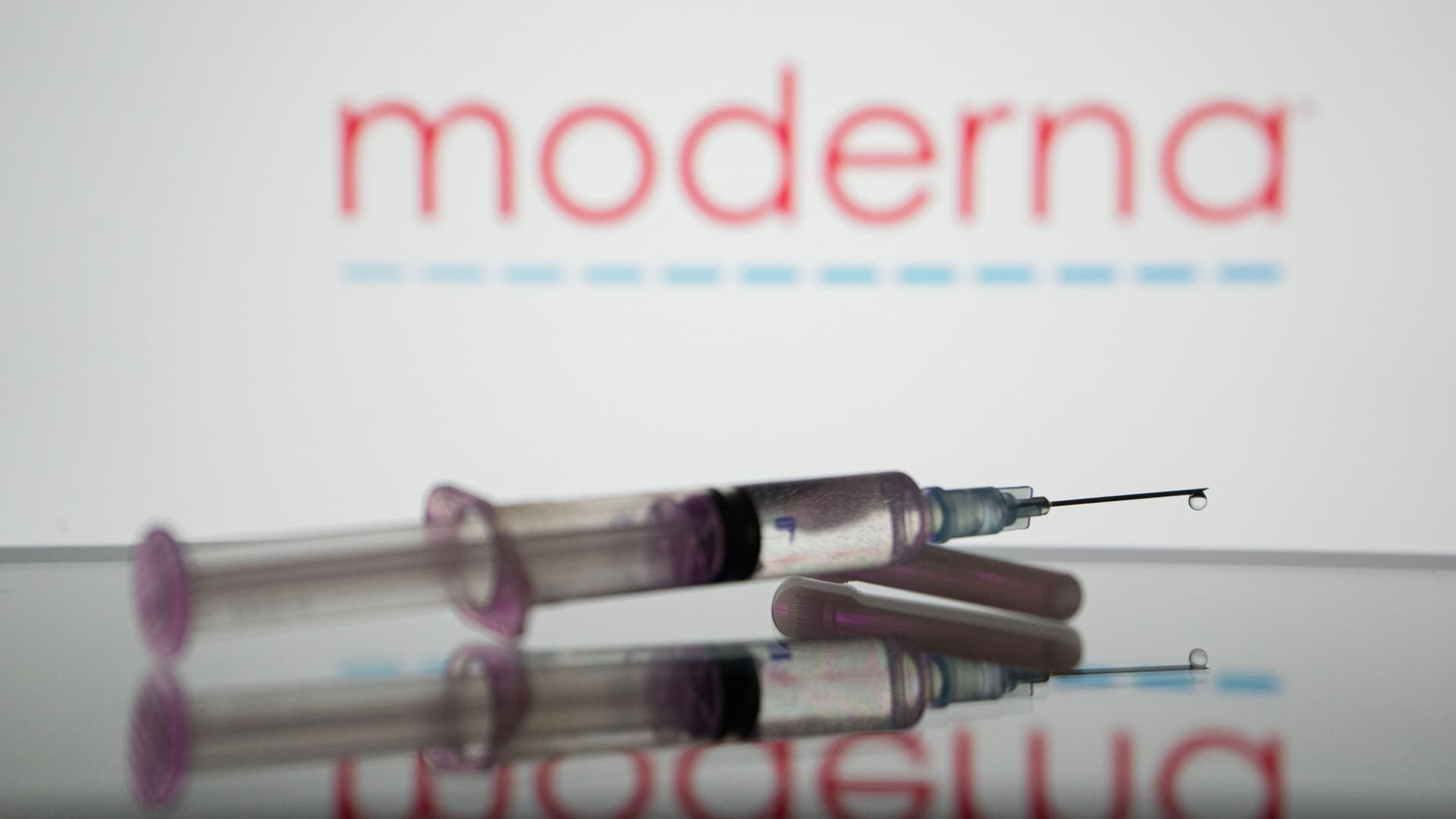Moderna on Monday said its Covid vaccine sales plunged by about two-thirds in 2023 to $6.7 billion, as fewer people rolled up their sleeves for an updated version of the jab.
The revenue from the shots met Moderna’s forecast for the year, even as sales plummeted from the more than $18 billion the company booked in 2022.
Moderna’s announcement, which came ahead of its presentation at the annual JPMorgan Healthcare Conference, shows the steep drop in demand for Covid products last year as cases and public concern about the virus dwindled from their pandemic peaks. Weakening demand for the company’s shot, its only commercially available product, led shares of Moderna to fall nearly 45% last year.
Roughly $6.1 billion of Moderna’s revenue related to the shot came from sales of the vaccine. Another $600 million was deferred revenue related to the company’s work with Gavi, a nongovernmental global vaccine organization that coordinated a global shot distribution program, Moderna said in a release.
Moderna during its third-quarter earnings report in November forecast at least $6 billion in full-year Covid vaccine sales, but did not provide a range for that guidance. In August, before the rollout of its latest version of the jab, the company said it expected the shot to rake in $6 billion to $8 billion in revenue.
The company noted that the vaccine won 48% of the U.S. Covid vaccine market share last year. That’s up from the 37% market it captured in 2022.
But the biotech company expects sales from the shot to drop even further in 2024. It reiterated its companywide full-year sales guidance of roughly $4 billion on Monday. Notably, that forecast includes revenue from its vaccine against respiratory syncytial virus, or RSV, which could win Food and Drug Administration approval in April.
Moderna said it expects to return to sales growth in 2025 with the launch of new products. The company currently has 45 products in development, nine of which are in late-stage trials. They include Moderna’s combination shot targeting Covid and the flu, which could win approval as early as 2025.
The company said it expects to “break even” by 2026.
